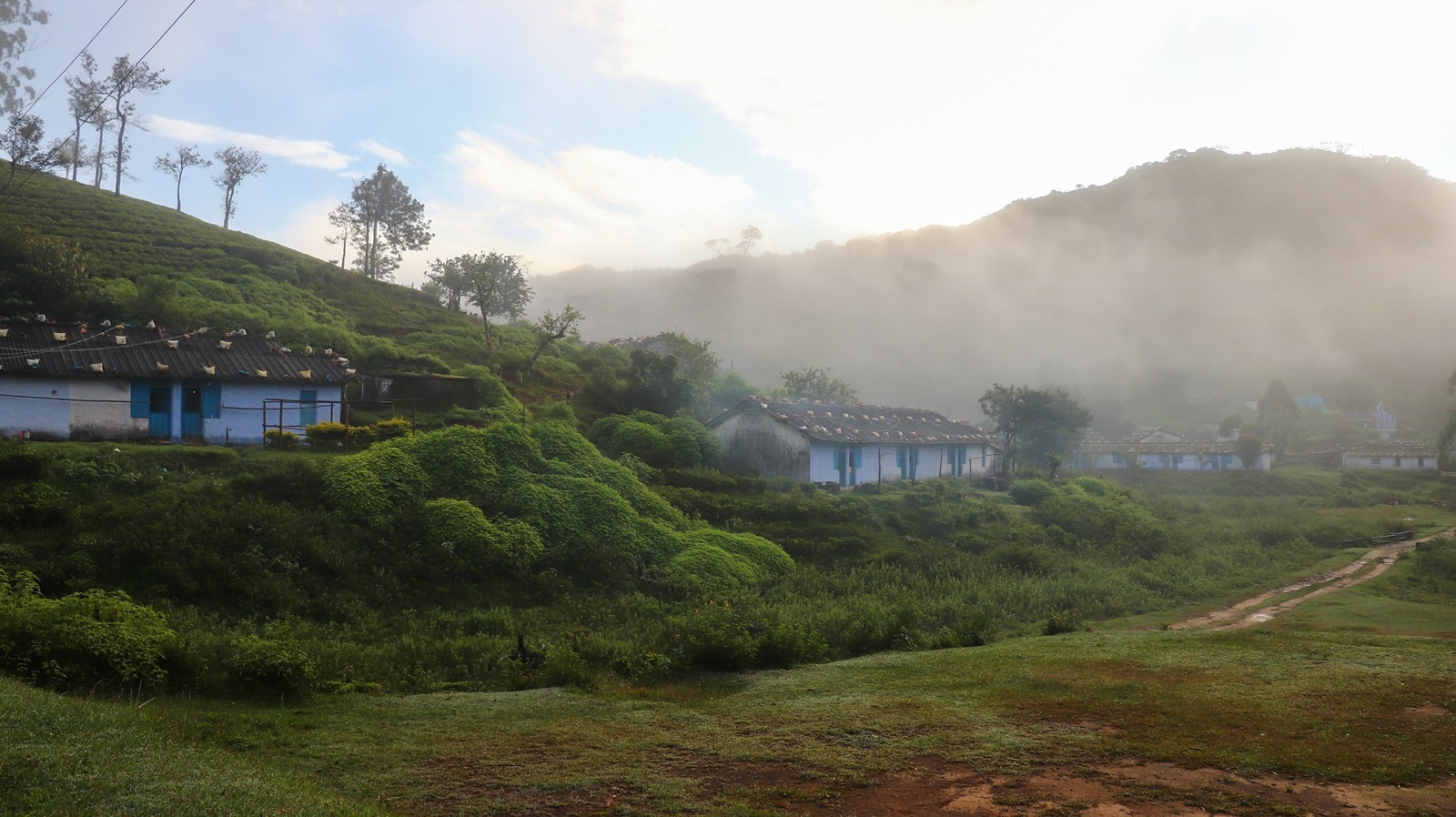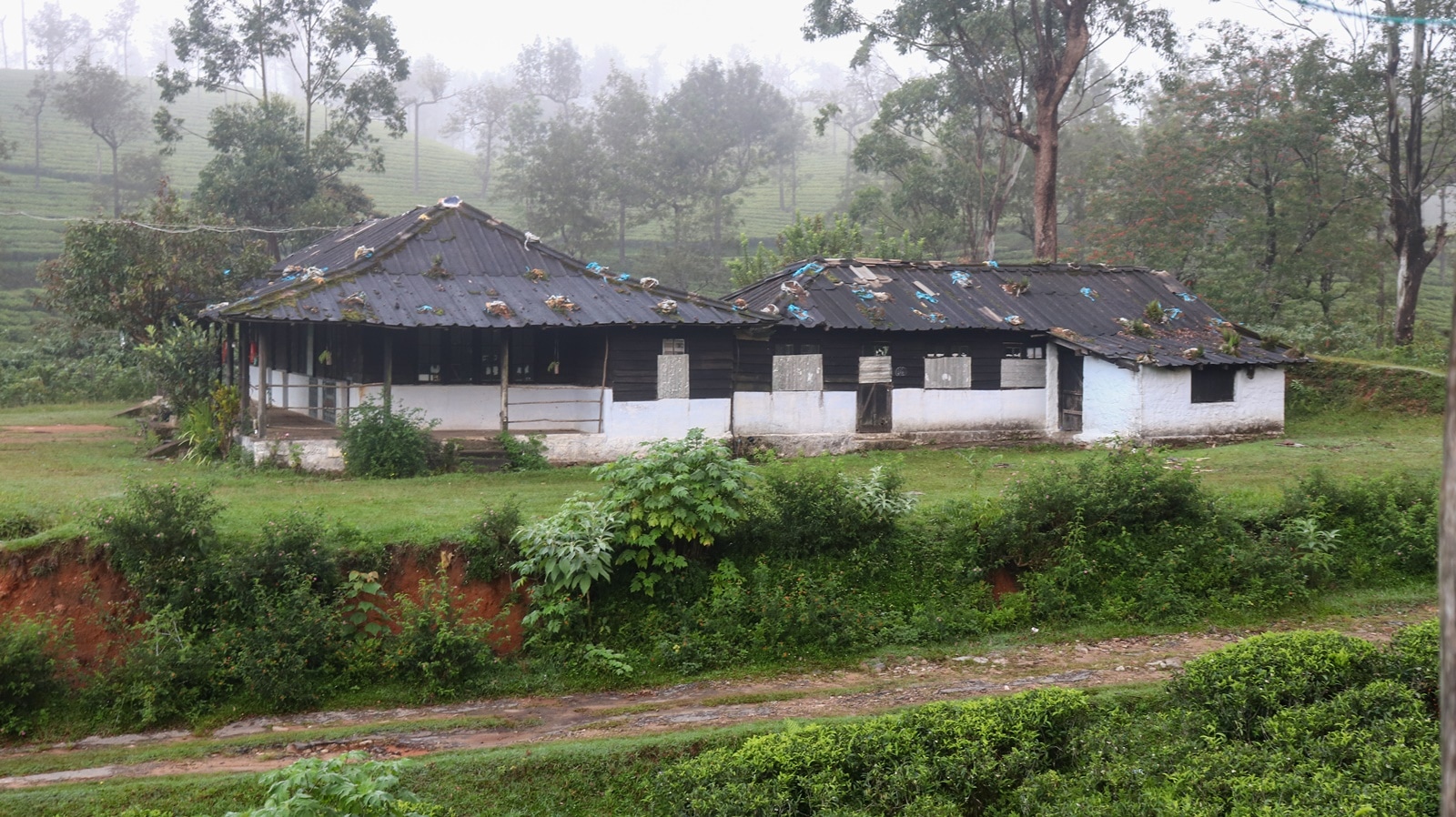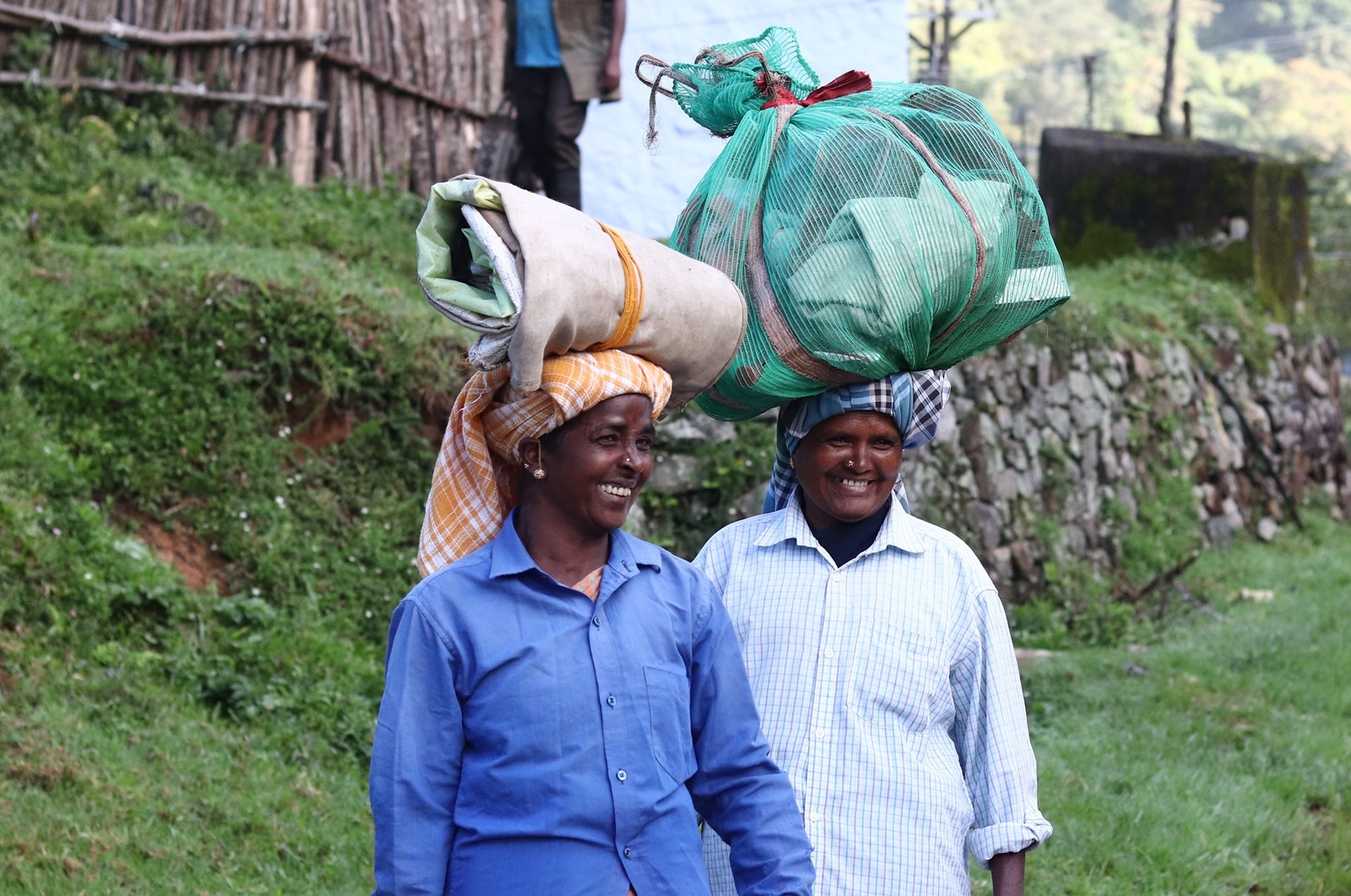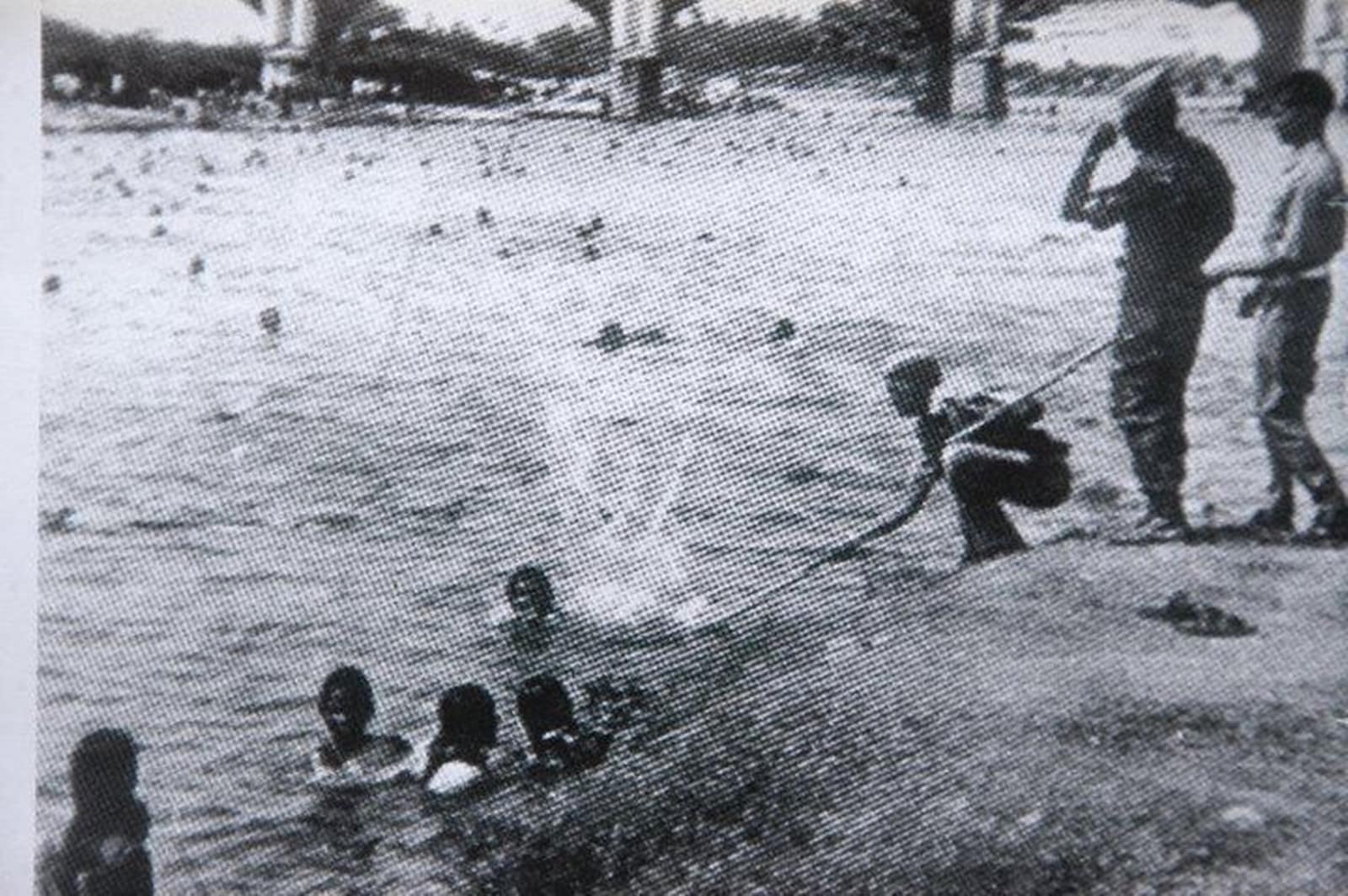Days after Bombay Burmah Trading Corporation Limited (BBTCL) rolled out a Voluntary Retirement Scheme (VRS) on May 30, residents of Manjolai in Tamil Nadu’s Tirunelveli, are scrambling to find new jobs, new houses, and a new life away from the tea plantations and the layam houses in which Dalits have shared memories for almost a century.
A contract between BBTCL and Singampatti Zameen to use the land in the reserved forest to cultivate tea, coffee, and cardamom will cease in 2028. Ahead of the contract termination, the tea plantation workers were asked to sign VRS and vacate the layam houses within 45 days.
Manjolai is a part of the southern Western Ghats in Tirunelveli which was under the possession of Singampatti Zameen before the Tamil Nadu Estates (Abolition and Conversion into Ryotwari) Act was enacted in 1948. Manjolai, Kakkachi, Naalumukku, Oothu and Kuthiraivetti are the five tea plantations in Manimuthar Town Panchayat collectively called Manjolai Estates or Singampatti Estates. The estates are located 69 km from Tirunelveli town and have been a part of Kalakkad Mundanthurai Tiger Reserve (KKTR), a core area of Agasthiyarmalai Biosphere Reserve.
People from Dalit communities around Tirunelveli district were deployed to create plantations in Manjolai when Singampatti Zameen leased 8373.57 acres of forest land to BBTCL on February 12, 1929, for 99 years. Even though there are four more years before the contract ceases, BBTCL has urged the workers to leave.
Carrying a piece of Manjolai
Now, about 2,100 people reside there with palpable anxiety over the future ready to set up their journey to the plains where their ancestors faced severe caste discrimination.
“They offer money, which is meagre. But it is not only about the money and livelihoods,” says Selvakumar Manimuthu, a son of tea plantation workers who moved to Tirunelveli for his work a decade ago. “It is our home. I want to show my daughter how our lives were and where we were born and brought up when she wants to know her roots. Now, all I fear is that we may be disconnected from the place that we call our home. I do not know whether they ever let us get into the estates where our ancestors toiled to make ends meet and to stay away from the casteist society,” added Manimuthu.
Like Manimuthu, residents born and brought up here carry memories of Manjolai everywhere.
Robert Chandrakumar, a writer and an advocate in the Madurai Bench of the Madras High Court, named his son after Agasthiyarmalai, one of the peaks in Agasthiyar Biosphere Reserve that houses Manjolai estates. “My marriage is an interfaith marriage and we did not want our son to carry any religious identification in his name so we named him Agasthya, after our mountain, our home,” Chandrakumar explains how Manjolai is a part of his life.
“People think that the situation of Manjolai residents is almost the same as what employees would face when private companies closed. But, be it Ford or Nokia, for the employees after their manufacturing outlets closed in Tamil Nadu, there were alternative jobs in the same line. But our entire lives were dedicated to creating estates out of thick wet forests. Our grandparents translocated, worked very hard, and died and were eventually buried in the mountains,” Chandrakumar said.
 Manjolai is a part of the southern Western Ghats in Tirunelveli which was under the possession of Singampatti Zameen before the Tamil Nadu Estates (Abolition and Conversion into Ryotwari) Act was enacted in 1948. (Express photos by Nithya Pandian)
Manjolai is a part of the southern Western Ghats in Tirunelveli which was under the possession of Singampatti Zameen before the Tamil Nadu Estates (Abolition and Conversion into Ryotwari) Act was enacted in 1948. (Express photos by Nithya Pandian)
Chandrakumar is among the fourth and fifth-generation of people who lived in Manjolai and moved out in the last decade. They have doubts about whether their connections with Manjolai would also cease once 536 permanent employees of BBTCL move out of the tea plantations in the following weeks.
“If so, how could we return to the graveyards to pay respect to our great-grandparents and grandparents? There are major concerns about protecting the forests. But even before the idea of reserved forests was conceived, Manjolai was there. It was there when two sanctuaries were created, later merged into one and rechristened into a national park and a tiger reserve over 5 decades. Manjolai estates and people remained unharmful to nature,” said Chandrakumar.
BBTCL and Manjolai estates
BBTCL was formed in 1863 by the Wallace Brothers, a Scottish merchant house in Edinburgh. It was a leading producer of teak in Burma and Siam, largely engaged in trading timber from Burma. In 1913, BBTCL entered the plantation business in South India. In 1926, BBTCL established The Mudis Group of Estates in the Anamalai Hills of Coimbatore and it acquired 8373.57 acres of forest land from Singampatti Zameen in 1929. The company made a down payment of Rs 88 per hectare and agreed to pay an annual rent of Rs 4.32 per hectare.
On February 19, 1952, the ownership of the land was taken and vested with the Government of Madras under the Madras Estates (Abolition and Conversion into Ryotwari) Act. Commissioner of Land Revenue Civil Suppliers & Settlements on August 13, 1958, ordered that BBTCL could remain in possession of the entire lease area for the rest of the lease period under certain conditions after the company sought permission to run the estates. BBTCL was ordered to not fall trees for timber and not to clear the forests to expand its plantations. It was directed particularly to not clear any portion of 970 acres of the catchment area of Kusavanguli, the southeast corner of the boundaries of the leased area. Out of the odd 8,300 acres of forest land, BBTCL cleared around 3500 acres of forest for plantations. The rest of the leased property remains as undisturbed forest even today.
In 1978, BBTCL filed a petition to exclude 8373.57 acres of forest land from announcing it as a reserved forest. The legal fight against the order was sub-judiciary for 40 years. In 2017, the Madras High Court declared 8,373 acres in the possession of BBTCL as a reserve forest. The order was passed while hearing a revision petition by BBTCL that sought a ryotwari patta for the land. When the matter was taken to the Supreme Court in 2018, the apex court upheld the High Court’s verdict.
Wadia Groups, a multinational Indian conglomerate, now manages BBTCL. Since 2018, there has been a discussion over the handover of the estates to the forest department. The residents also demanded the state government bring the estates under the Tamil Nadu Tea Corporation (TANTEA), an establishment to support the Tamil repatriates from Sri Lanka after the Sirima-Shastri Pact in 1964. TANTEA has estates in the Nilgiris and Coimbatore districts.
Little time to think
On May 30, 2024, BBTCL issued a notice of VRS with a deadline of June 14. “In order to facilitate sustainable management of the business at Singampatti Group, BBTCL is rolling out VRS for the benefit of its employees allowing them to opt for the FRS, basis their eligibility,” the notice read.
BBTCL also said it would provide statutory dues, ex-gratia, and statutory bonuses (2023-2024) to those who opt for VRS.
The workers, under the age group of 56 to 59, who opted for VRS would get Rs 3 lakh. Employees aged 53 to 56 years would get Rs 2,93,000. And those aged below 53 would get Rs 2,25,000 as monetary benefits. According to the notice, 25 per cent of the gratuity will be released to the workers after the company accepts their applications. Those who opted for VRS should vacate their quarters within 45 days or on August 7, according to BBTCL. Once the workers vacate and hand over the company’s properties to the administration, the remaining 75 per cent of the gratuity will be given to them, it added.
 Layam houses in which Dalits have shared memories for almost a century. (Express photos by Nithya Pandian)
Layam houses in which Dalits have shared memories for almost a century. (Express photos by Nithya Pandian)
The residents said the management should have given enough time to them to think and act accordingly. “We would have mentally prepared for this day if they had announced it earlier. People panicked as the time frame was minimal. We have signed the VRS because we do not want to be left out here. But there is no clear idea of what we are going to do once we leave the place,” said Nirmal Kumar Alexander, another Manjolai resident.
Besides permanent workers, there are decent numbers of vouchers or those who extended their jobs in the estates even after their retirement as they did not have their own houses to return to. “What would happen to them once they return to the plains?” asked Alexander, adding 15 days to sign VRS and 45 days to vacate their homes are hardly sufficient.
What is waiting for them in the plains?
The residents pointed out how insufficient the monetary benefits are. Bama Kausalya, a Congress Councilor from Manjolai, said, “The 25 per cent gratuity that was guaranteed is not enough considering a struggle to find a decent house, pay a deposit, and transport all our belongings to the plains”.
“After this news was out, the rent in Ambasamudram and nearby villages have exorbitantly increased in the last two weeks. The house owners are anticipating that Manjolai residents would opt to ‘settle’ there,” said Manimuthu.
According to the residents, it would cost them anywhere between Rs 2,000 to Rs 2,500 to rent a small house in the village. The amount would surge as high as Rs 6,500 if they choose to live in main areas like Ambasamudram, Papanasam, Palayamkottai, and Tirunelveli.
 The workers, under the age group of 56 to 59, who opted for VRS would get Rs 3 lakh. (Express photos by Nithya Pandian)
The workers, under the age group of 56 to 59, who opted for VRS would get Rs 3 lakh. (Express photos by Nithya Pandian)
Jayarani, a veteran journalist, who has extensively written about the Thamirabarani massacre of 1999 and the Manjolai estate labourers issue in the early 2000s, asked whether this money would help them get a decent house or buy a cent of land in Ambasamudram, a nearby town. “There was no caste discrimination and oppression in the layam houses. But once they return to the plains, they will ideally go to the areas that are exclusive for Dalit residents in the villages that are surrounded by the caste Hindu houses,” said Jayarani.
A peaceful environment to live a peaceful life as Dalits in Tirunelveli is a different debate considering the number of caste atrocities meted out on Dalits. Dalit rights activists frequently urge the Tamil Nadu Government to declare Tirunelveli as a caste atrocity-prone district. Besides, their lives revolved around tea plantations.
But here, they would have to start everything from scratch. “After the age of 50, what kind of job opportunities are there for them?” asked Jayarani.
The demands
V Palani, former CPM district secretary, said the government’s intervention in this matter has been late. “The closure of the Manjolai estates has been in discussions since this January. However, the intervention of the state government has occurred at the last minute. The government should have discussed the alternative livelihood measures, housing schemes, and everything much before the company rolled out the VRS,” said Palani, who took part in the workers’ procession in Thamirabarani on July 23, 1999, and received severe head injuries in police action.
However, there was little hope that the government would take the estates as politicians from different party lines formed Manjolai Paathukaappu Kuzhu (Manjolai Protection Collective) and gave a memorandum to the district collector at least twice. The issue is expected to be discussed in the Tamil Nadu Assembly session, scheduled on June 20.
Speaking to reporters, Assembly Speaker Appavu said it would be good for Tamil Nadu if the tea estate workers’ presence continued in the region of Western Ghats and promised that the state government would take appropriate measures to protect the welfare of the workers on June 11.
Appavu was one of the five MLAs who participated in the Thamirabarani procession, and witnessed the state brutality against the protesters firsthand. He was a part of the Tamil Maanila Congress (Mooppanar) party then.
However, Manjolai residents said Appavu’s remarks were a little too late. “Though he knew our struggles from the beginning, he did not take up this matter to the chief minister until the last minute,” said Chandrakumar. “There was no discussion with people from the government before the announcement of VRS. Even during the elections, no political parties visited Manjolai to campaign,” another resident lamented.
Manjolai workers believe that the state government would be required to put minimum effort into operating the estates if they are brought under TANTEA. “It would bring job opportunities. Those who left Manjolai fearing that there would be no future would return to their homes,” Chandrakumar noted.
 Thamirabarani massacre has been considered one of the most tragic incidents and is compared with the Jallianwala Bagh massacre. (X/ Veeranattar)
Thamirabarani massacre has been considered one of the most tragic incidents and is compared with the Jallianwala Bagh massacre. (X/ Veeranattar)
According to him, at least 1,400 families in the estates left after the 1999 Thamirabarani massacre. Of the five plantations, three had tea factories. However, factories in Oothu and Manjolai were closed due to low production. Now, tea leaves from the plantations have been processed in the Nalumukku tea factory.
Former Assembly speaker Avudaiyappan said the government should take appropriate measures against BBTCL as it closed the estates before the contract period and put the workers at risk. “We want the government to take over the estates but there was a Supreme Court direction which ordered the estates to be reserved forest. The government now needs to get legal opinions from the experts to act further,” he noted.
This reporter reached out to BBTCL over the early closure of the estates and is yet to get its response. The copy will be updated once we receive the response.
25th-anniversary Thamirabarani massacre
In the history of labour struggles in the state, the Thamirabarani massacre has been considered one of the most tragic incidents and is compared with the Jallianwala Bagh massacre.
On June 8, 1999, Dr Krishnasamy, founder of the Puthiya Thamizhagam party organised an agitation and demanded a wage hike up to Rs 150 per day for the Manjolai workers. The agitation was held in front of the collectorate. Following the agitation, 652 workers and their family members, including women, were detained and sent to central prison in Tiruchirappalli. On July 23, 1999, 5,000-odd workers from Manjolai estates and working unions led a procession to present a petition to the district collector to demand the release of about 652 workers who were detained in Tiruchirapalli and to demand a salary hike.
 The Thamirabarani massacre of 1999. (X/ Veeranattar)
The Thamirabarani massacre of 1999. (X/ Veeranattar)
The procession was stopped by the police when it was about 50 metres from the district collectorate. There was a scuffle between police personnel and protesters as they neared the rear gate. To control the commotion, the police resorted to caning the marchers after stones were pelted. When the police approached the protesters from three sides, the marchers ran into the Thamirabarani River to escape. But, the police chased them and beat them.
“We had a history of silencing their demands with violent brutal police attacks that led to the death of 17 people, including a toddler who was just an 18-months-old boy. Now, we are witnessing a historic unjust against them again. The civil societies, the government, the labour unions, and political parties which once used these people for their political gains also abandoned the people,” said Jayarani recalling the Thamirabarani massacre.










